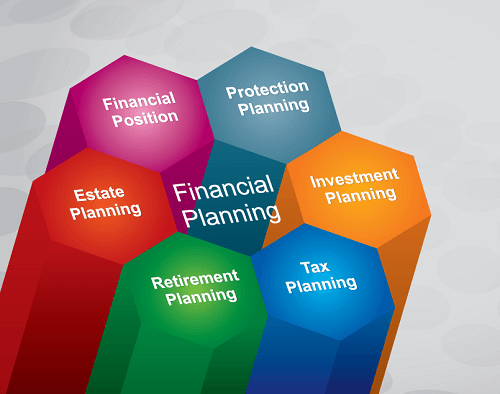Sunny Leone was once a practicing nun.
There! We just did what gets done all the time – create a myth.
The financial planning world is full of such myths (not about Sunny Leone, but hey, we like the way you think!)
Here are five such myths. We can’t tell you who created them. So we’ll do the next best thing – bust ‘em!
1. Rs 1 crore enough for retiring peacefully
Yeah, you hear this all the time.
Big as that numbers sounds, Rs 1 crore won’t amount to much as a retirement corpus in the next 25-30 years. Trust us – we’ve done the math.
A simple way to understand the value of Rs 1 crore 30 years from now is to estimate its value today. Consider an average inflation of around 5% for the next 30 years (a certain Mr. Jaitley would be secretly chuckling at this). The current value of Rs 1 crore 30 years from now is around just Rs 23.5 lakhs. Unfortunately, the retirement corpus of Rs 23.5 lakh today is not enough to last for another 25-30 years.
Let’s consider that your annual expenses, including medical and other lifestyle expenses, is Rs 4 lakh. With an average inflation of 5% and rate of return on investments at 7%, you would need around Rs 2.5 crore to retire without worrying too much about running out of money.
So, the next time someone says Rs 1 crore is enough to retire, you know you have reason to snicker.
2. Tax planning and financial planning are two different beasts
Tax planning is just an important cog in the financial planning wheel. If you think it is not, it is time to rethink.
Your tax-saving investments, if allocated to the right kind of instruments, can help you build a big corpus. Say you are investing that Rs 1.5 lakh (the amount allowed under Section 80 C of the Income Tax Act) every year for 30 years and it generates an average 10% return. It could help you to create a corpus of Rs 2.7 crore, given that you invest in instruments that are completely tax free.
Therefore, while selecting investment options for tax-saving purpose, see your overall portfolio mix, and then decide which option to choose from. Ensure that your portfolio is not debt heavy just because you prefer NSC or tax-savings FDs.
3. Short-term performance reflects long-term potential
At a time when ‘instant’, ‘quick’, and’ speed’ are synonymous to success, thinking long term seems so old school.
But, when it comes to investments, the effect of compounding comes to play when more time is given to your investments. Rs 1 lakh growing at 12% every year would become Rs 3.1 lakh in 10 years, Rs 5.5 lakh in 15 years and Rs 9.6 lakh in 20 years.
Typically, in case of equities, if the investments have not done well in the short term, investors often sell their holdings and press the exit button. However, data proves that equities in the long term have beaten all other asset classes in terms of return.
Over the past 35 years, the Sensex has given an average annual return of 16%, that’s phenomenal considering (the earlier example) what a 12% annual return over 15-20 years can do to your investments.
4. Gold and real estate are foolproof investments
Indians are suckers for physical assets.
Erm, we’re talking about gold and real estate here. No doubt they have performed well as an asset class between 2008 and 2013, but that’s a very short period to judge any asset class.
Over the long term, both gold and real estate have not been able to perform as well as equities have. Besides, both gold and real estate are not very liquid assets, which you can sell at your desired selling price anytime.
In the last three years, investors must have realized that even gold and real estate investments can fetch you negative returns.
So, when someone said “All that glitters is not gold,” they forgot to add “All that rocks is not real estate either!”
5. Debt is always bad
This one mostly came from an accountant (hey, we’ve nothing against them, they do our taxes too!)
But, not all loans are bad. Some such as those taken for frivolous activities like throwing a birthday party of the kid or wife, arranging a foreign vacation or buying a fancy gadget are indeed bad. But, loans taken to finance business expansion, buying your first house or funding education are not bad if one has availed it as per one’s repaying capacity.
Before we let you go, know this: nuns are scared of Sunny Leone.
Don’t ask us why.
We just created this one!
YOU MAY ALSO WANT TO: Use our Compound Interest Calculator, Fixed Deposit Interest Calculator or Retirement Savings Calculator to give shape to your financial planning.
